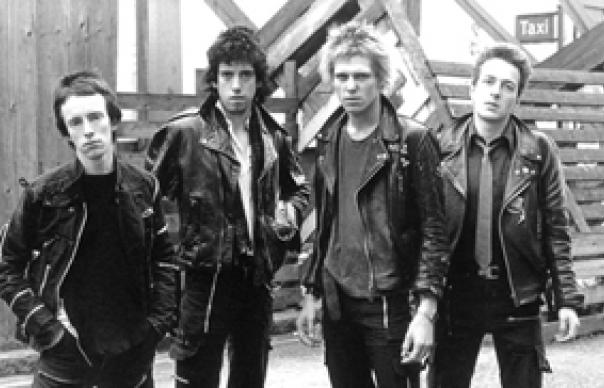There’s a lot to celebrate here. To be precise, in one edition, there’s every Clash UK single and its B-side, available on vinyl on separate discs in facsimiles of their original sleeves. The CD box set, on sale simultaneously, has all the singles plus additional bonus tracks – US and Argentinean promos, Canadian, Dutch and Spanish B-sides – again presented individually in replica sleeves. Both editions, by the way, include the “Capital Radio EP”, originally given away with NME, and now available for the first time commercially. Over the two formats, there are over 60 tracks and the packages are completed by a 44-page booklet, with rare and unseen pictures and entries on their favourite Clash tracks by, among others, Pete Townshend, Nick Hornby, The Edge, Tony Parsons, Bobby Gillespie, Irvine Welsh, Bernard Sumner, Ian Brown and, er, Sharleen Spiteri. You come away from both versions inevitably elated – this is terrific music, after all – but also regret at the foolhardiness of Joe Strummer’s disastrous sacking of Mick Jones, an act of reckless folly that not only sent The Clash into premature decline but precipitated Joe’s own wilderness years. Whenever I met Strummer in the aftermath of the band’s pitiful demise, there would inevitably be much sad acknowledgement that he had so utterly fucked up. When Mick was given the boot, they were even then barely into their prime, much great music still to come - the muggily hallucinatory “Straight To Hell” as notable a step towards something previously uncharted as “(White Man) In Hammersmith Palais” had been from the screechy excitement of the early singles. It’s not merely that by some benign alchemy time has been unusually kind to this music. That so much of it even now is so electrifying is rugged testimony to the sturdy basics of the Strummer-Jones songwriting partnership and the incremental wallop of the band’s musical clout. Beyond their sometimes pantomimic rebel posturing, Joe’s ill-conceived admiration for a variety of squinty-eyed killers passing themselves off as revolutionary freedom fighters, and an apparent thrall at one point to the epaulette as a sartorial signature of their uncompromisingly radical intent, The Clash have a by-now pretty incontestible claim to make for themselves as rock immortals. Strummer’s unbridled passion was an indelible component of what made them unforgettable, and since his death he has been virtually canonised. It would be critically negligent, however, not to similarly hosanna Mick Jones, whose ear for a great tune, fantastic riff and gift for arrangement on all fronts gloriously enhanced Joe’s raucous rebel yell. ALLAN JONES
There’s a lot to celebrate here. To be precise, in one edition, there’s every Clash UK single and its B-side, available on vinyl on separate discs in facsimiles of their original sleeves. The CD box set, on sale simultaneously, has all the singles plus additional bonus tracks – US and Argentinean promos, Canadian, Dutch and Spanish B-sides – again presented individually in replica sleeves. Both editions, by the way, include the “Capital Radio EP”, originally given away with NME, and now available for the first time commercially. Over the two formats, there are over 60 tracks and the packages are completed by a 44-page booklet, with rare and unseen pictures and entries on their favourite Clash tracks by, among others, Pete Townshend, Nick Hornby, The Edge, Tony Parsons, Bobby Gillespie, Irvine Welsh, Bernard Sumner, Ian Brown and, er, Sharleen Spiteri.
You come away from both versions inevitably elated – this is terrific music, after all – but also regret at the foolhardiness of Joe Strummer’s disastrous sacking of Mick Jones, an act of reckless folly that not only sent The Clash into premature decline but precipitated Joe’s own wilderness years. Whenever I met Strummer in the aftermath of the band’s pitiful demise, there would inevitably be much sad acknowledgement that he had so utterly fucked up. When Mick was given the boot, they were even then barely into their prime, much great music still to come – the muggily hallucinatory “Straight To Hell” as notable a step towards something previously uncharted as “(White Man) In Hammersmith Palais” had been from the screechy excitement of the early singles.
It’s not merely that by some benign alchemy time has been unusually kind to this music. That so much of it even now is so electrifying is rugged testimony to the sturdy basics of the Strummer-Jones songwriting partnership and the incremental wallop of the band’s musical clout.
Beyond their sometimes pantomimic rebel posturing, Joe’s ill-conceived admiration for a variety of squinty-eyed killers passing themselves off as revolutionary freedom fighters, and an apparent thrall at one point to the epaulette as a sartorial signature of their uncompromisingly radical intent, The Clash have a by-now pretty incontestible claim to make for themselves as rock immortals. Strummer’s unbridled passion was an indelible component of what made them unforgettable, and since his death he has been virtually canonised. It would be critically negligent, however, not to similarly hosanna Mick Jones, whose ear for a great tune, fantastic riff and gift for arrangement on all fronts gloriously enhanced Joe’s raucous rebel yell.
ALLAN JONES


